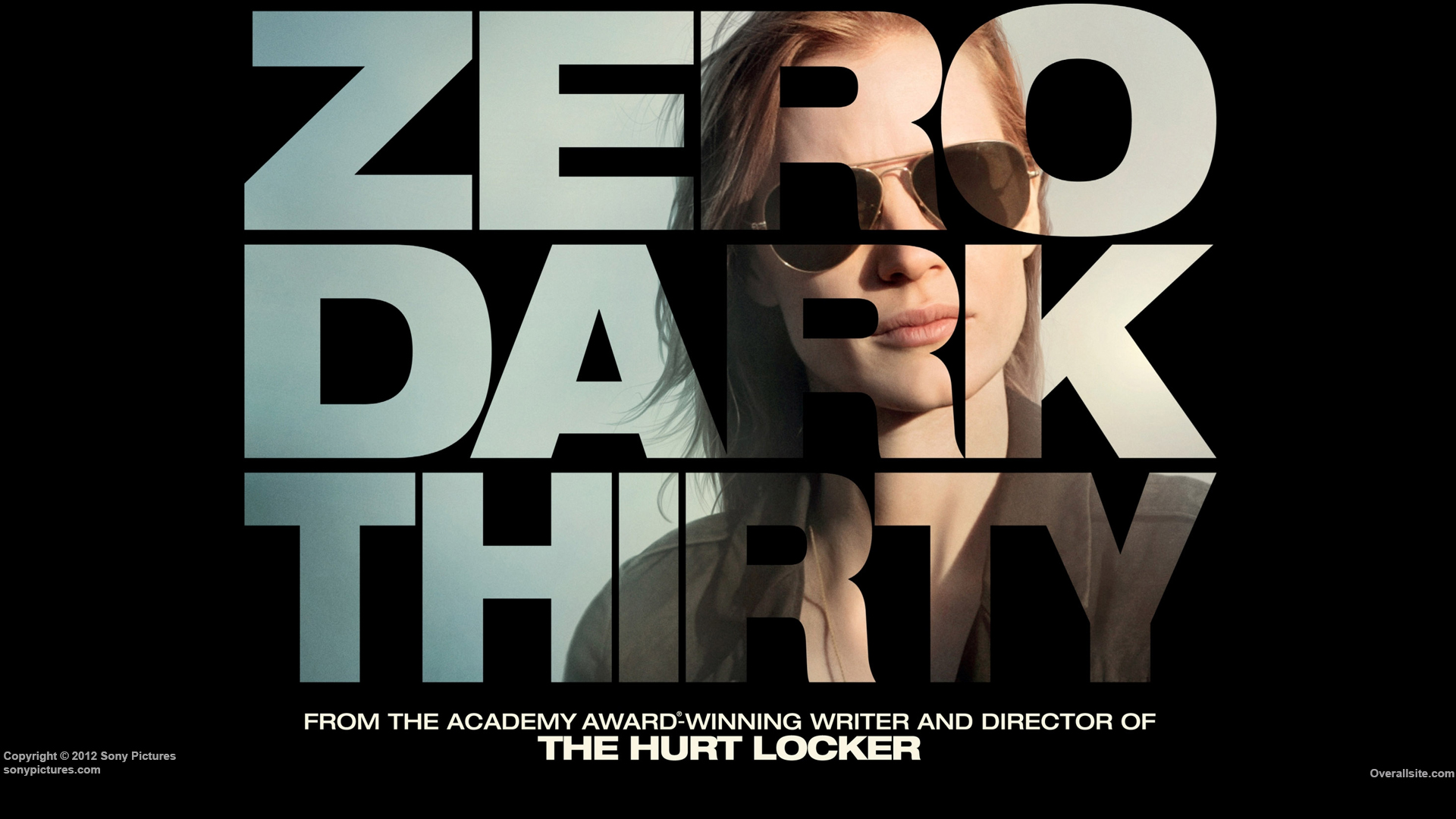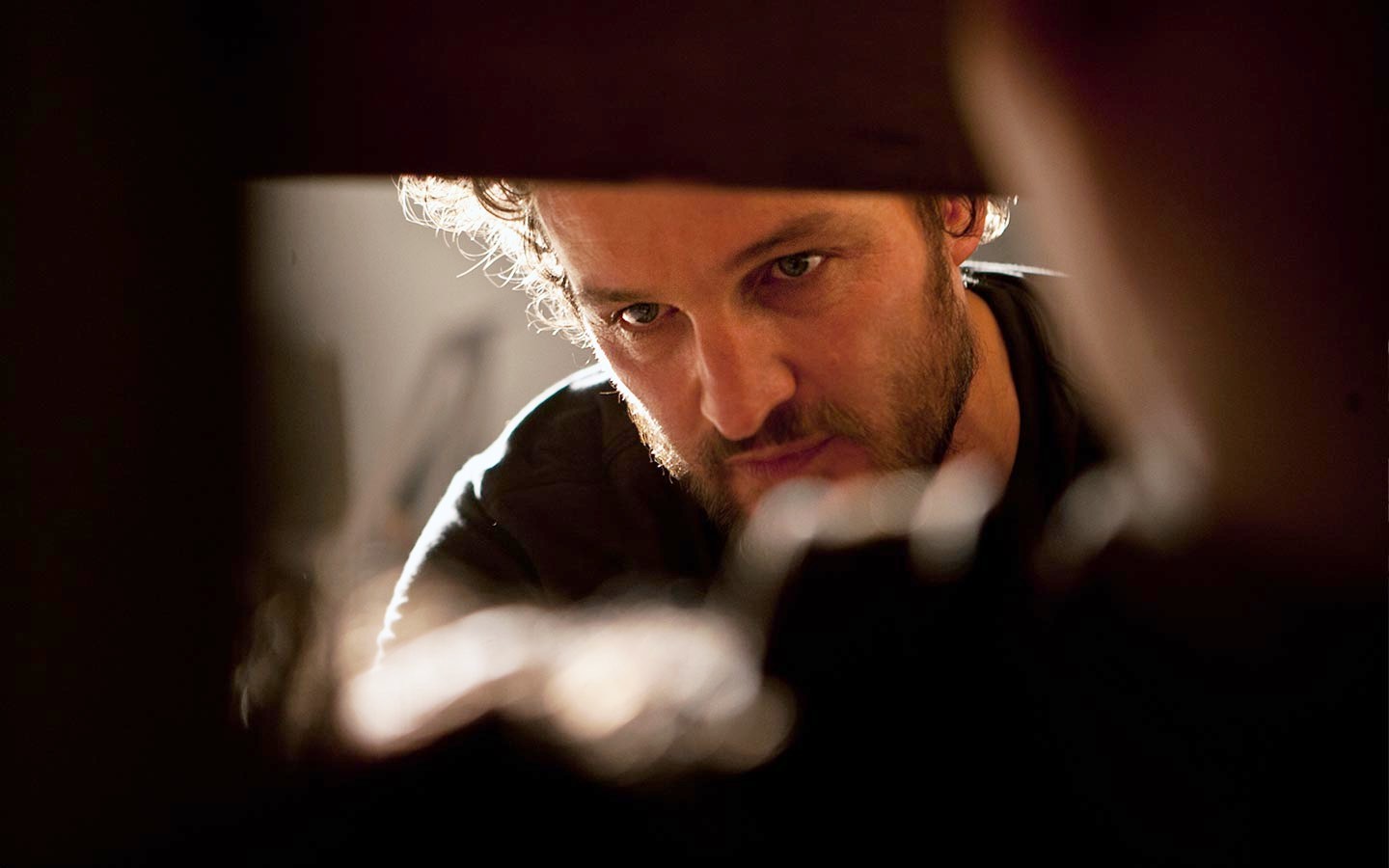Director - Kathryn Bigelow
Country - USA
Starring - Jessica Chastain, Jason Clarke, Kyle Chandler
Running Time - 157 minutes
A chronicle of the decade-long hunt for al-Qaeda terrorist leader Osama bin Laden after the September 2001 attacks, and his death at the hands of the Navy S.E.A.L. Team 6 in May 2011.
War has changed. This is the immediate message of Kathryn Bigelow's Zero Dark Thirty. No longer won through soldiers and battles, but information and statistics. The line between civilian and target has been blurred. With the internet, events are instantly broadcasted across the world and public reaction has never been more foregrounded; facts, opinions and motives have never been more direct yet so fractured. It is the cinema that has most directly reflected and responded to the developments of conflict throughout the 20th (and into the 21st) century. We see it in the technology, from pulp glorification to the increasing desire to bring us as close to the 'reality' in the most aesthetically exciting way. We also, see it in the nature of the films themselves; the propaganda films of World War 2 against the anger from the films of 'Nam.
But Zero Dark Thirty has no such agenda. Bigelow isn't here to debate, but merely to depict. She looks to present the events (as far as contemporary knowledge understands them) accurately, but what she finds is terrifying.
But Zero Dark Thirty has no such agenda. Bigelow isn't here to debate, but merely to depict. She looks to present the events (as far as contemporary knowledge understands them) accurately, but what she finds is terrifying.
A movie about the hunt and eventual killing of bin Laden was inevitable, after all the actions of S.E.A.L. Team Six are virtually the stuff of action movie legend resulting in the first clear-cut American victory in a long time. During the decade long manhunt public and political attitudes changed as the US casualties increased and the ever increasing chase yielded no results. It was almost a complete surprise then on the 2nd of May 2011 when the news was broke that America had finally caught their bogeyman. It would set the tone for the second decade of the 21st century almost as much as the event that sparked the War on Terror had the first. So the existence of a movie adaption isn't whats surprising, it is the existence of this movie that is.
Bigelow and writer Boal finished an initial draft centered around the 2001 Battle of Tora Bora and the subsequent escape of bin Laden, supposedly finishing on an ambiguously sombre note when the news of his death hit. Yet despite being presented with the fairy-tale ending, the tone remains unchanged. Zero Dark Thirty is not a testament to American success, instead it presents us with a destruction. There is no room for heroes here, nor time for celebration, those are liberties of a by-gone era. Instead we witness the emergence of a new world, one birthed in darkness and marked on the hard drive of every computer across the globe.
The film opens with a disturbing audio montage of recordings from 9/11, police reports and phone calls of those trapped in the towers. The impact only heightened by the lack of visual accompaniment as we are left to fill the identity of the people ourselves. The film then jumps two years ahead to a CIA base where Jason Clarke is currently in the process of torturing a detainee for information. This quick jump cut illustrates both the determination and the frustration of the CIA as the trail has run cold.
At this point enough has already been made of controversy surrounding the depiction of torture, and I am not going to spend much time addressing it, once again Bigelow only depicts. She detaches herself from opinion by refraining from concentrated editing patterns or camera angles (outside of a basic film making level) to criticize or approve. It is presented as the rest of the film is, and we can decide ourselves if it was necessary or not.
 We are then introduced to the agent known only as Maya, played by Jessica Chastain. The person on which she is based remains officially 'non-existent' but first hand accounts say the performance captures her intense determination. She is a fiercely driven woman, remaining one of the few who stay true to the search as the situation becomes more fragmented with independent cells and attacks acting throughout the world (including an frighteningly realistic re-enactment of the 7/7 London bombings.) Maya could too easily become a singular beacon for American tenacity, as her confidence and preservation do persuade her superiors and even the S.E.A.L. team themselves when it comes down to it. Yet, the film is no triumph and Chastain plays her remarkably human, but sure footed touch. At one point Maya guides her friend to safety after an explosion, only for that friend to be undone by having the audacity to trust later on. There are no movie fake-outs here. She claims later on that she was 'spared' to finish the job, but was she really? She accomplishes the impossible, but in the end she is left with nothing and no-one, just the empty seats of a helicopter and a ticket to anywhere in the new world she has created.
We are then introduced to the agent known only as Maya, played by Jessica Chastain. The person on which she is based remains officially 'non-existent' but first hand accounts say the performance captures her intense determination. She is a fiercely driven woman, remaining one of the few who stay true to the search as the situation becomes more fragmented with independent cells and attacks acting throughout the world (including an frighteningly realistic re-enactment of the 7/7 London bombings.) Maya could too easily become a singular beacon for American tenacity, as her confidence and preservation do persuade her superiors and even the S.E.A.L. team themselves when it comes down to it. Yet, the film is no triumph and Chastain plays her remarkably human, but sure footed touch. At one point Maya guides her friend to safety after an explosion, only for that friend to be undone by having the audacity to trust later on. There are no movie fake-outs here. She claims later on that she was 'spared' to finish the job, but was she really? She accomplishes the impossible, but in the end she is left with nothing and no-one, just the empty seats of a helicopter and a ticket to anywhere in the new world she has created. Bigelow creates a sense of urgency by structuring the film like that of a serial killer, complete with maps, false trails and intense getaways. This is reinforced through erratic disregard for the cinematic space. Bigelow utilizes a variety of techniques with her camera, from surveillance style wide shots to frantic handheld close-ups. With no comprehensible rhythm to her editing nor consistency in her visual style we are given very little bearing as to our place in relation to the characters, the atmosphere becomes increasingly oppressive. It works to the same effect Stanley Kubrick achieved in The Shining (albeit through differing approaches) and is best illustrated in the films final act. We are given copious amount of information regarding its layout, yet the intensity of the raid is furthered by the labyrinthine complex. The comparisons with Kubrick's horror opus don't stop there; both fracture the passage of time through title cards and Alexandre Desplat's soundtrack is frequently portentously measured beyond it's genre.
 The raid sequence itself is surely to become one of cinema's most daring and incredible action sequences. As the helicopters depart they are illuminated by this brilliant midnight sun, it carries the apocalyptic taint to the proceedings as the darkness that has blanketed the films events now descends on the sky itself. The following assault plays out in terrifying silence punctuated only by suppression fire and breach charges. It defies cinematic code by presenting an action sequence that is directed by such a flat reality. The death of bin Laden is so brutally quick it offers us no catharsis, there is no final confrontation or dramatic stand off, just a flash and a bullet. 'Don't you realize what you just did?' states one soldier, 'I just shot the guy on the third floor' he returns. Without so much of a cheer, they turn their attention to gathering as many hard drives and file cabinets as possible before they must make their escape. This is a war won on information and statistics, not heroes.
The raid sequence itself is surely to become one of cinema's most daring and incredible action sequences. As the helicopters depart they are illuminated by this brilliant midnight sun, it carries the apocalyptic taint to the proceedings as the darkness that has blanketed the films events now descends on the sky itself. The following assault plays out in terrifying silence punctuated only by suppression fire and breach charges. It defies cinematic code by presenting an action sequence that is directed by such a flat reality. The death of bin Laden is so brutally quick it offers us no catharsis, there is no final confrontation or dramatic stand off, just a flash and a bullet. 'Don't you realize what you just did?' states one soldier, 'I just shot the guy on the third floor' he returns. Without so much of a cheer, they turn their attention to gathering as many hard drives and file cabinets as possible before they must make their escape. This is a war won on information and statistics, not heroes.
With Zero Dark Thirty Bigelow has presented us with the death of bin Laden as the death of the old world. Those ideals we sought to protect have been so, but the cost has left a scar across those who fought for them. Their wounds have been transported to us all through the increasing reach of the internet. Through her purely apocalyptic vision Bigelow's film is also a destruction of the action movie too, how can one look to the over excited fetishism of recent action movies knowing they lack the dull silence of reality? The result is one of the best and most important American films in years, and one that will surely be preserved as a cinematic and contemporary artifact. It leaves us with one unsettling question; at what cost?



No comments:
Post a Comment